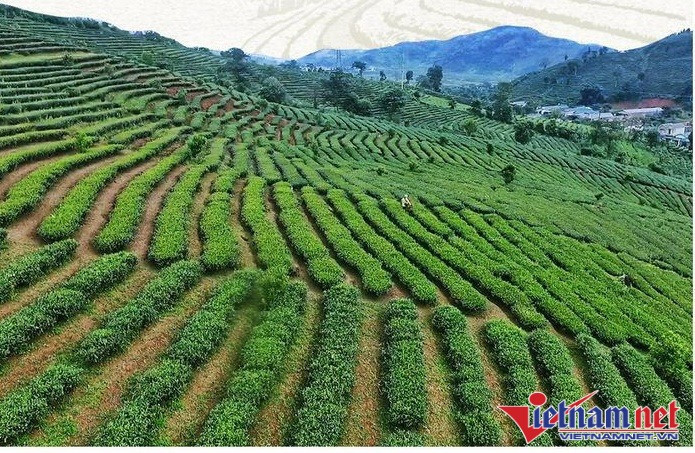
After many years of “working for hire” for big conglomerates, and running a business of his own, Doan Huu Tue, CEO of My Viet International Group, said he understands the difficulties enterprises have to face.
Most processing enterprises in the agricultural sector are small and medium sized enterprises, but they play an important role in securing crop outlets, creating jobs for farmers, and curbing rural-to-urban labor shifts. Yet, accessing state-subsidized loans is tough for them, and industrial park land rents are steep.
My Viet International Group wants to locate itself in Industrial Zones, lease land there and build plants, but rental costs stopped them cold. Tue has repeatedly sought preferential loans, but has never succeeded.
Deep-processed coffee products hold huge export potential, growing well in markets like China, Dubai, South Korea, and Australia. His firm constantly lacks stock to sell.
“To satisfy all customers’ orders, we have to expand the production scale by five times. However, our investment capital is limited and our savings are modest, while we cannot access preferential loans despite a lot of attempts,” he said.
“As a result, we cannot grow and we have to refuse a lot of big orders,” he said.
In 2016, BHL Son La JSC borrowed from VietinBank Son La to build and run a cassava starch plant with a 200-ton/day capacity in Mai Son IZ in Son La. In 2018, the enterprise upped the production capacity to 300 tons per day.
BHL Son La now ranks among Vietnam’s top cassava starch processors with its Conbotot brand.
Chu Thi Kim Oanh, chair of BHL Son La Agricultural Processing JSC, said her business sets up big goals for 2025, including developing material growing areas by connecting with co-ops, farmers and partners, boosting modern processing tech, and expanding export markets.
“We hope banks keep offering preferential credit for agro-processing firms, support trade finance channels for global markets, and guide us with flexible financial solutions,” Oanh urged.
Also in Son La, Viet Dung Energy JSC, has been cooperating with Agribank Son La for the over 20 years to develop energy projects in and out of the province. It has signed a credit limit contract worth VND300 billion for Suoi Do hydropower project. It is now implementing the 15MW Chieng Muon hydropower project with a VND296 billion loan.
With preferential loans from VietinBank Lai Chau, Tan Uyen Tea Company in Lai Chau province in 2024 built a processing plant, upgraded tech, and boosted working capital, thus creating over 50 jobs and buying tea from over 100 households across 400+ hectares.
“Thanks to this, we grow yearly with revenue and profits always beating the prior year,” chair Do Viet Trung said.
Flexible lending scheme needed
Bui Anh Tuan, chair of No6 Trade and Construction in Dien Bien, said enterprises in different business fields need loans with varying terms and purposes, requiring flexible lending and specific subsidized rates.
Industry and energy, for instance, need mid-to-long-term loans with low rates for infrastructure and tech investments to ensure sustainable development.
In trade, dining, and services, flexible credit and working capital are key to expanding systems, improving service quality, and meeting rising demand.
For construction and infrastructure, project cash flow reliance demands adaptable loans tied to payment schedules, ensuring progress and capital efficiency.
Tuan urged commercial banks to simplify procedures and cut appraisal times, especially for firms with solid credit histories, and further lower lending rates as businesses are recovering after the pandemic.
Given many co-ops and SMEs struggle with collateral for bank loans, Nguyen Ngoc Son, chair of Quynh Ngoc JSC and Son La Business Association, proposed that banks provide loans with mortgage, which are assets to take shape in the future.
He also urged the State Bank of Vietnam (SBV) to allow credit institutions to adjust the required businesses’ self-financed capital ratio for projects to 15 percent (from 30 percent), raising bank loans to 85 percent.
Pham Chi Quang, head of SBV’s Monetary Policy Department, said credit is largely based on agreements between institutions and clients.
On interest rates - a big business concern - Quang noted a 2.3 percent yearly drop in lending rates from 2023-2024, with a 0.6 percent dip in the first three months.
“The banking sector will follow the Prime Minister’s instructions, stabilizing deposit and lending rates, aiding the economy, and creating favorable conditions for credit institutions to cut loan rates further,” Quang stressed.
Binh Minh